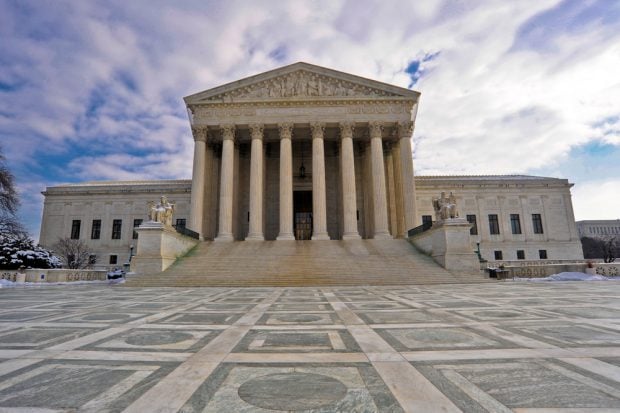This month marks the eighth anniversary of the collapse ofLehman Bros. and the ensuing breakdown of numerous other financialinstitutions that created our nation's massive financial crisis –an impact that continues to reverberate through our nation and theworld.
|As lawmakers return to Washington from the August recess and thepresidential election campaign evolves, it is critical that weleverage every chance to promote awareness of one of the brightspots from the financial crisis: Credit unions. Thanks to theirunique, prudent business model of service to their members, creditunions were, and continue to be, instrumental in helping our nationrecover, particularly in the area of Main Street smallbusinesses.
|Credit unions – not-for-profit, member-owned financialcooperatives – and small businesses have a naturally symbioticrelationship. Small businesses are the catalysts that help fuel oureconomy, and account for 99.7% of U.S. employers. Indeed, America'sentrepreneurial spirit is on the upswing. According to the 2016Kauffman Index of Startup Activity, recent startup activityincreased to 0.38 in 2016 – going up for the second year in a row –two years after decreasing to its lowest level in two decades.Credit unions are a great source of capital that help Main Streetbusinesses succeed and contribute to America's economy and jobgrowth.
|In fact, a 2011 study commissioned by the Small BusinessAdministration's Office of Advocacy found that during the financialcrisis from 2007 to 2010, while banks' small business lendingdecreased, credit union business lending increased as a percentageof assets. Today, credit unions continue to help small businessesgrow. In 2015, credit union outstanding small business loans rose12.2% to $58.1 billion.
|Credit unions would like to do more. Unfortunately, thearbitrary lending cap that limits credit unions' member businessloans to 12.25% of assets hampers them from doing more lending.NAFCU has been diligently advocating for Congress to lift thisarbitrary cap by passing the Credit Union Small Business Jobs Act,H.R. 1188, introduced by Reps. Ed Royce (R-Calif.) and Greg Meeks(D-N.Y.). Sens. Rand Paul (R-Ky.) and Paul Whitehouse (D-R.I.)introduced similar legislation in the Senate – S. 2028, the SmallBusiness Lending Enhancement Act of 2015.
|Credit unions have been widely recognized by regulators andCongress for their prudent business model and for not creating thefinancial crisis. Unfortunately, lawmakers, in their zeal to reinin Wall Street and the bad actors that produced our financialcrisis, created legislation that lumped good actors, includingcredit unions, into a new regulatory regime.
|Credit unions have had to manage a tidal wave of regulations asa result of the Dodd-Frank Wall Street Reform and ConsumerProtection Act. Overregulation hits credit unions and its memberswith a double whammy. Every dollar credit unions allot forcompliance is a dollar that is not available for lending. Inaddition, more than 20% of the industry, or more than 1,500federally-insured credit unions, have disappeared since the passageof Dodd-Frank. And almost all (96%) of these have been smallercredit unions with $100 million or less in assets.
|The limitations on credit unions have driven some small businessowners to seek alternative sources of capital including onlinemarketplace lenders. Unfortunately, online lenders do not offersmall business owners the same consumer protections nor are theysubject to the same disclosure rules and underwriting standardsthat apply to traditional lenders. In May, the Treasury Departmentrecognized these issues in its white paper on marketplace lenders.NAFCU has strongly urged the Treasury and other financialregulators to promulgate rules that require online marketplacelenders to meet regulatory requirements, such as the protections ofTruth in Lending Act and underwriting standards for loans.
|The disparity in offerings and disclosures by online marketplacelenders underscores credit unions' vital role to Main Street'ssmall businesses.
|During this election campaign, NAFCU has met with both campaignsand urged Democratic presidential nominee Hillary Clinton andRepublican presidential nominee Donald Trump to recognize the vitalrole credit unions represent to Main Street businesses and to thecountry's financial future.
|Bottom line: Credit unions are a critical lifeline to MainStreet. Overregulation is a burden that stymies credit unions'ability to provide vitally needed capital to help Main Street smallbusinesses. When they succeed, we all succeed. To that end, wecontinue to advocate for regulatory relief for credit unions,especially lifting the arbitrary business lending cap and creatinga level playing field for online lenders. This will allow creditunions to do even more to help small businesses not just survivebut thrive, create more jobs and make our economy more robust.
||
 B. Dan Bergeris president/CEO of NAFCU. He can be reachedat 703-522-4770 or [email protected].
B. Dan Bergeris president/CEO of NAFCU. He can be reachedat 703-522-4770 or [email protected].
Complete your profile to continue reading and get FREE access to CUTimes.com, part of your ALM digital membership.
Your access to unlimited CUTimes.com content isn’t changing.
Once you are an ALM digital member, you’ll receive:
- Critical CUTimes.com information including comprehensive product and service provider listings via the Marketplace Directory, CU Careers, resources from industry leaders, webcasts, and breaking news, analysis and more with our informative Newsletters.
- Exclusive discounts on ALM and CU Times events.
- Access to other award-winning ALM websites including Law.com and GlobeSt.com.
Already have an account? Sign In
© 2024 ALM Global, LLC, All Rights Reserved. Request academic re-use from www.copyright.com. All other uses, submit a request to [email protected]. For more information visit Asset & Logo Licensing.









